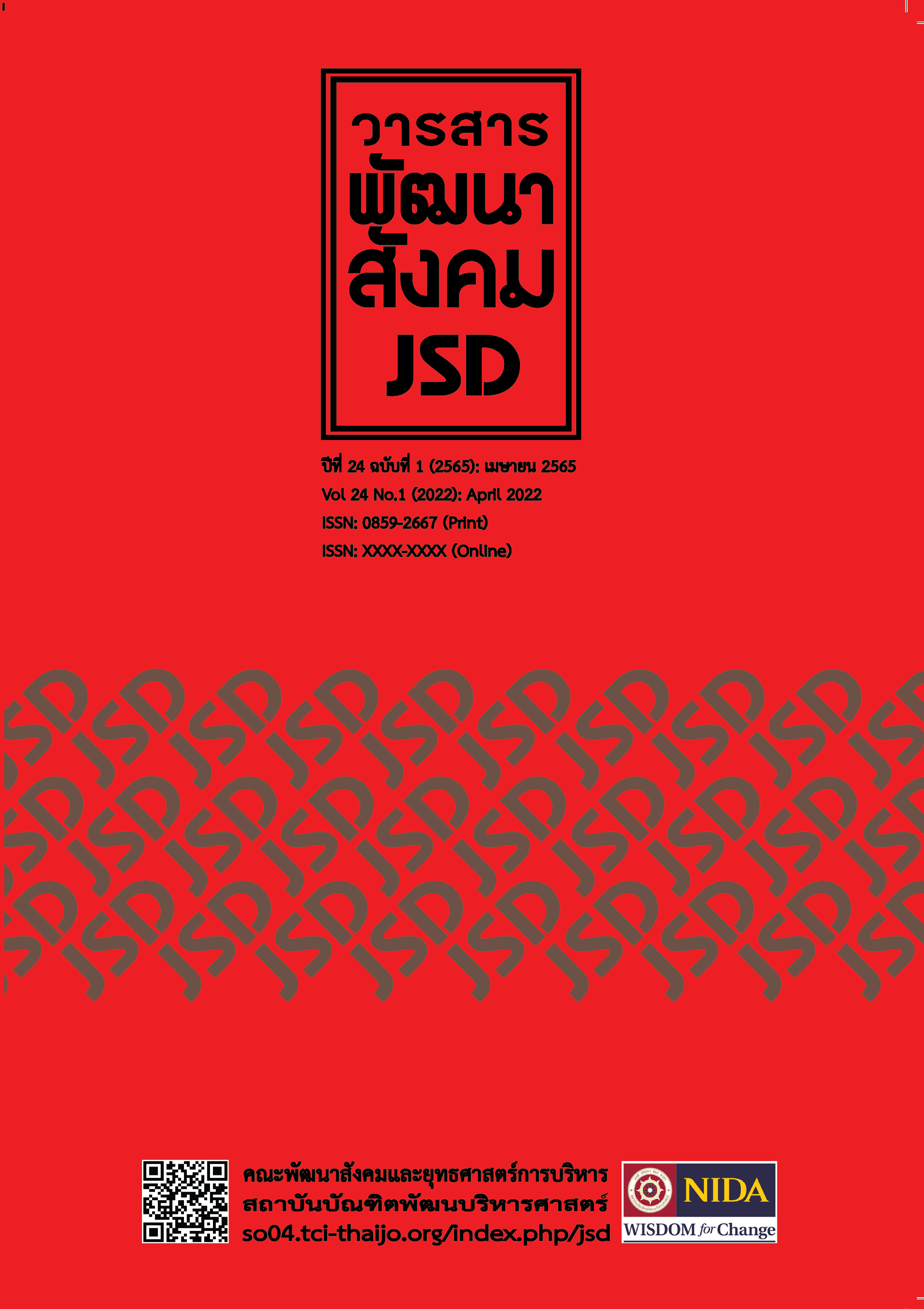The Role of Thai–Chinese Foundation and Association towards Society in Samutprakan Province
Main Article Content
Abstract
The research study the Role of Thai–Chinese Foundation and Association towards Society in Samutprakan Province. The results of the research reveals that establishment of Thai-Chinese foundations and associations gave benefit to the people and society in Samutprakan Province and played a role in promoting social development in the area. The factors affecting the sustainability of the Chinese-Thai organizations are the Thainess of the Chinese descendants, especially the issues of incomprehensibility and deprioritization of Chinese tradition culture resulting in less interest and less participation of new generation in the Thai -Chinese organization. The factors promoting the sustainability of the Thai -Chinese organizations are the proper management of the organization, especially for those who work within the organization can support themselves and their families, and Thai-Chinese foundations and associations have various activities with local people without discrimination to help develop society. In addition, the relations and cooperation with similar organizations in China can help the organizations to develop in many areas. The people-to-people connectivity can also be the foundation of fostering stronger relations between Thailand and China.
Article Details

This work is licensed under a Creative Commons Attribution-NonCommercial-NoDerivatives 4.0 International License.
References
Blumer, H. (1969). Symbolic Interactionism Perspective and Method. Englewood Cliffs: Prentice-Hall.
Document Processing and Archives Committee. (1999). Culture History Identity and Wisdom of Sumutprakan Province. [In Thai]. Bangkok.
Du, W., Dong, F. (2001). Interview with Du Weiming's Academic Subject. [In Chinese]. Shanghai: Fudan University.
Emerson, R. M. (1976). Social Exchange Theory. Annual Review of Sociology, 335-362.
Juntaronanont, P, & Thongsamrit, P. (2016). Paknam Old City: Chinese Believe and Way of Life [In Thai]. Proceeding of the 1st Chinese Studies National Conference 2016. Huachiew Chalermprakiet University.
Karns, M. P. (n.d). Nongovernmental Organization. Retrieved from https://www.britannica.com/topic/nongovernmental-organization.
Kume, H. (1997). Management by Quality (Preecha, L. & Kitisak, P, Trans). [In Thai]. Bangkok: Technology Promotion Association (Thailand-Japan).
Melissen, Jan. (Ed.). (2007). The New Public Diplomacy Soft Power in lnternational Relations. London: Palgrave Macmillan.
Ministry of Interior. (2013). Operation Manual of Foundations and Associations. [In Thai]. Bangkok: Asaraksadindan Publishing.
National Statistical Office. (2019). Non-profit Organization Survey 2018 [In Thai]. Bangkok: Forecast Statistics Division.
Nye, J. S., Jr. (2004). Soft Power: The Means to Success in World Politics. New Delhi: Knowledge World.
Pornsiripongse, S. (2013). People-to-People Diplomacy: Shifting from National to Cultural Borders [In Thai]. Journal of Mekong Societies, 9(3), 101-112.
Psathas, G. (2014). The Interactionist Perspectives of George Herbert Mead and Harvey Sacks. Social Science Today. 24-36.
Salamon, L. M. & Helmut, A. K. (1996). The International Classification of Nonprofit Organizations: ICNPO-Revision 1 (Working Papers of the Johns Hopkins Comparative Nonprofit Sector Project). Baltimore: The John Hopkins Institute for Policy Studies.
Skinner, W. G. (1957). Chinese society in Thailand. New York: Cornell University Press.
Songsiri, W. (2016). From Paknam to Samutprakan the Sea Port City. [In Thai]. Retrieved from http://lek-prapai.org/home/view.php?id=810
Thaithong, W. (1985). Contemporary Social Psychology. [In Thai]. Bangkok: Siam Education.
Yanyongkasemsuk, R. (2013). Symbolic Interaction Theory and the Explanation of Social Phenomena from Actor Perspective. [In Thai]. Journal of Politics, Administration and Law, 5(2), 69-90.


